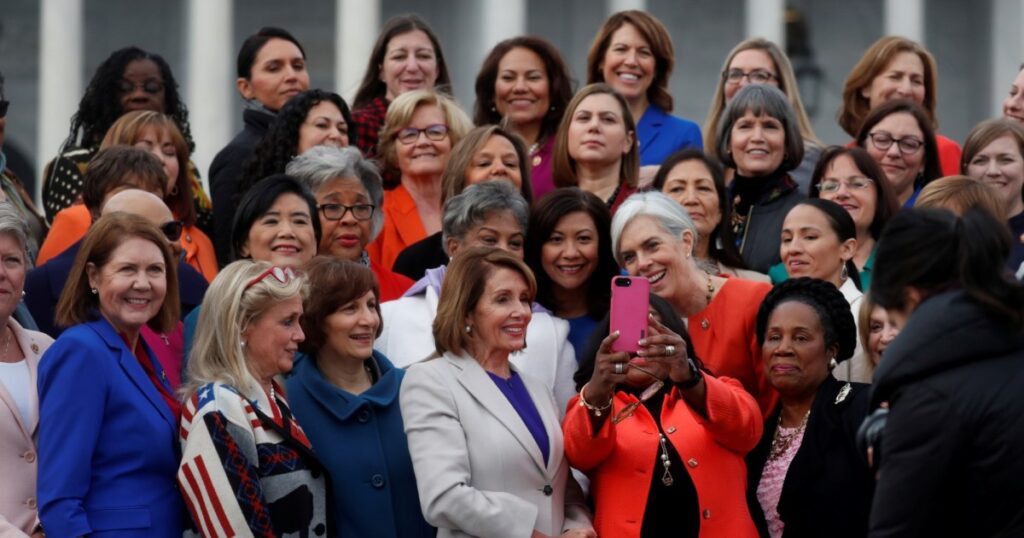This International Women’s Day we promise to carry on the transformative work of our predecessors in the Labour party
As Labour’s shadow chancellor of the exchequer, I know I stand on the shoulders of giants from our party’s past: the Labour women who stood up and changed our country for the better. Women like Barbara Castle, who introduced the Equal Pay Act; Jennie Lee, who created the Open University; Alice Bacon, who reformed the law to make abortions legal; Ellen Wilkinson, who raised the school-leaving age; Jo Richardson’s campaigning against domestic violence, and the work done on Sure Start and tax credits by Tessa Jowell and Harriet Harman, have all shaped our movement and our country.
Thanks to the radical improvements those Labour governments brought in to support women in their work and family lives, there are more women in work today than ever before, and more are balancing a career and a family, too.
This week we celebrate that progress, while acknowledging that there is still much to do before women and men are equal. In that context, there can be no shying away from the fact that women were disproportionately affected by the economic impact of the Covid-19 pandemic.
Even before the pandemic hit, women were more likely to be stuck in low-paid work and hampered by a parenthood pay gap. At its height, they were more likely to be furloughed, more likely to lose income, and more likely to work in the sectors that were hardest hit. Black, Asian and minority ethnic women – who are more likely to be in lower paid, insecure work in the first place – were hit particularly hard. Working from home also increased family duties for women, with mothers more likely to be interrupted and finding themselves with less time than fathers for their paid job. And of course, women are still paid less than men – a gender pay gap that has actually widened over the last year.
Labour believes that women hold the key to a strong economy – and the evidence backs that up. Women-led small- and medium-sized enterprises contribute about £85bn to the economy. And when women are involved in businesses – whether starting up, rising up or sitting on boards– they make them more profitable. Companies with the most gender-diverse executive teams are 25% more likely to have above-average profitability than those with the least diverse teams, and companies where more than three in 10 of their executives are women are more likely to outperform companies than those with fewer female executives. The government’s own study of UK FTSE 100 firms found a positive relationship between gender diversity and firm performance, which became more significant when three or more women were appointed to the board.
This is all very encouraging, but it’s not clear if ministers have got the message. The government must recognise the role women will play in our economic recovery and understand the need to back them to succeed. Yet its own Small Business Survey shows that only 16% of small business employers and one in three of entrepreneurs are women, and women also struggle to access the financing and new business loans needed to get their companies off the ground. In bank financing, 15% of applications were led by women and 56% by men, and just 22% of new primary business bank accounts were opened by women, compared with 66% by men. Though success rates for both were roughly the same, the average loan amount approved for female-led businesses was around £25,000; for male-led businesses it was about £33,000.
Labour wants to put women at the heart of our economic recovery – to lift women up, not hold them back. We will do that by backing female entrepreneurs and great British enterprise. Under the Conservatives, the rate of business creation has plummeted across every English region since 2016. Labour would reverse that trend by creating 100,000 new startups in the first term of a Labour government across all English regions – doubling the number of businesses the government’s Start Up Loans scheme is delivering through a five-year funding guarantee that will fund 20,000 new businesses a year over the next five years.
Our Equal Recovery Pledge will also ensure that the inequality supercharged by the Covid pandemic does not become even deeper and more embedded during our recovery. The next Labour government will introduce a new deal for working people that will bring in stronger family-friendly rights.
On International Women’s Day, it’s right that we celebrate women and the progress they have made in building a more equal society. But we cannot be complacent about the challenges they still face today. Labour understands that women are crucial to the future of Britain’s economy – and, as the first woman chancellor under a Labour government, I am determined to make sure their effort and talent is recognised.
